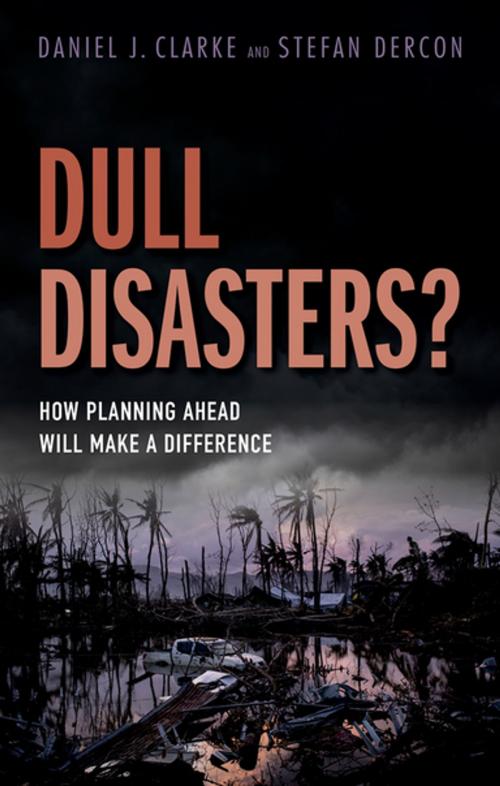Dull Disasters?
How planning ahead will make a difference
Business & Finance, Economics, Urban & Regional, Nonfiction, Social & Cultural Studies, Social Science| Author: | Daniel J. Clarke, Stefan Dercon | ISBN: | 9780191088421 |
| Publisher: | OUP Oxford | Publication: | April 7, 2016 |
| Imprint: | OUP Oxford | Language: | English |
| Author: | Daniel J. Clarke, Stefan Dercon |
| ISBN: | 9780191088421 |
| Publisher: | OUP Oxford |
| Publication: | April 7, 2016 |
| Imprint: | OUP Oxford |
| Language: | English |
This is an open access title available under the terms of a CC BY 3.0 IGO licence. It is free to read at Oxford Scholarship Online and offered as a free PDF download from OUP and selected open access locations. In recent years, typhoons have struck the Philippines and Vanuatu; earthquakes have rocked Haiti, Pakistan, and Nepal; floods have swept through Pakistan and Mozambique; droughts have hit Ethiopia, Kenya, and Somalia; and more. All led to loss of life and loss of livelihoods, and recovery will take years. One of the likely effects of climate change is to increase the likelihood of the type of extreme weather events that seems to cause these disasters. But do extreme events have to turn into disasters with huge loss of life and suffering? Dull Disasters? harnesses lessons from finance, political science, economics, psychology, and the natural sciences to show how countries and their partners can be far better prepared to deal with disasters. The insights can lead to practical ways in which governments, civil society, private firms, and international organizations can work together to reduce the risks to people and economies when a disaster looms. Responses to disasters then become less emotional, less political, less headline-grabbing, and more business as usual and effective. The book takes the reader through a range of solutions that have been implemented around the world to respond to disasters. It gives an overview of the evidence on what works and what doesn't and it examines the crucial issue of disaster risk financing. Building on the latest evidence, it presents a set of lessons and principles to guide future thinking, research, and practice in this area.
This is an open access title available under the terms of a CC BY 3.0 IGO licence. It is free to read at Oxford Scholarship Online and offered as a free PDF download from OUP and selected open access locations. In recent years, typhoons have struck the Philippines and Vanuatu; earthquakes have rocked Haiti, Pakistan, and Nepal; floods have swept through Pakistan and Mozambique; droughts have hit Ethiopia, Kenya, and Somalia; and more. All led to loss of life and loss of livelihoods, and recovery will take years. One of the likely effects of climate change is to increase the likelihood of the type of extreme weather events that seems to cause these disasters. But do extreme events have to turn into disasters with huge loss of life and suffering? Dull Disasters? harnesses lessons from finance, political science, economics, psychology, and the natural sciences to show how countries and their partners can be far better prepared to deal with disasters. The insights can lead to practical ways in which governments, civil society, private firms, and international organizations can work together to reduce the risks to people and economies when a disaster looms. Responses to disasters then become less emotional, less political, less headline-grabbing, and more business as usual and effective. The book takes the reader through a range of solutions that have been implemented around the world to respond to disasters. It gives an overview of the evidence on what works and what doesn't and it examines the crucial issue of disaster risk financing. Building on the latest evidence, it presents a set of lessons and principles to guide future thinking, research, and practice in this area.















